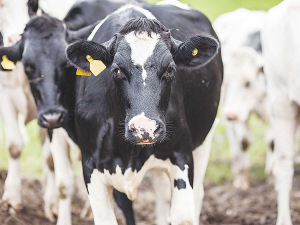State of the Dairy Nation 2024/25: DairyNZ Highlights Record Milk Production and Export Growth
DairyNZ's chief executive Campbell Parker says the 2024/25 dairy season reinforces the importance of the dairy sector to New Zealand.
 The government has come up changes to proposed intensive winter grazing regulations which on the face of it are likely to please farmers.
The government has come up changes to proposed intensive winter grazing regulations which on the face of it are likely to please farmers.
The government has come up changes to proposed intensive winter grazing regulations which on the face of it are likely to please farmers.
According to Environment Minister David Parker and Agriculture Minister Damien O’Connor the changes to the regulations, now up for consultation will make them practical for farmers to comply with while ensuring improved environmental outcomes.
The main changes are that farmers can re-sow grazed paddocks as soon as conditions allow, instead of by a set date. Specific requirements around the depth of pugging will also be removed.
Damien O’Connor says the government has been listening to farmers and earlier this year changed the proposed approach to low slope maps. He says the Government has been working with industry representatives and regional councils this winter to roll out on-the-ground support to drive better practices to benefit freshwater quality and animal welfare.
“We recognise it’s a busy time of the year on-farm and that the country is dealing with the Delta outbreak. But, overlapping with existing consultation being undertaken for certified freshwater farm plans and stock exclusion, low slope maps will make it easier for farmers to have input,” he says.
Damien O’Connor says he wants to encourage farmers to have their say on practical ways to improve intensive winter grazing.
Consultation runs for six weeks until 7 October 2021. The consultation document and online submission forms are available on the Ministry for the Environment's website: https://consult.environment.govt.nz/freshwater/intensive-winter-grazing-regulations/
Industry reaction
This is generally positive with B+LNZ saying confirmation that government is shelving the unworkable pugging and sowing date rules in its latest intensive winter grazing proposal is positive for farmers,
CEO Sam McIvor says B+LNZ along with other industry groups, have for some time been calling on the Government to replace the pugging and sowing date rules with sensible and pragmatic alternatives.
“We believe the Government’s new proposed approach, which focuses on practical management by farmers, is more workable - and that’s progress. But we still have concerns around the proposed revised 10-degree slope rule for winter grazing and the certified freshwater farm plan process,” he says.
DairyNZ says the proposed changes to winter grazing regulations appear to be a sensible step forward, but CEO Dr Tim Mackle says his organisation will review the fine print of the proposed changes to help deliver rules that work on-farm.
“There appears to be positive changes to pugging, resowing and critical source area rules, based on primary sector feedback, but we need more detail to understand how these changes might work in practice.It’s also good to see the proposed resowing date shift to ‘as soon as practicable’. This makes it possible for farmers to establish their crops well, in line with weather and managing environmental risk,” he says.
Dr Mackle says farmers are proactively putting in place good practice for winter grazing and it’s vital the new regulations are practical, so good work continues.
The Meat Industry Association of New Zealand (MIA) today announced that Chief Executive Officer Sirma Karapeeva has resigned from the role.
The winners of the 2026 Hawke’s Bay/Wairarapa Dairy Industry Awards were announced at the annual awards dinner held at Copthorne Solway Park in Masterton on Thursday evening.
Environment Southland is welcoming this week’s decision by the Environmental Protection Authority (EPA) to approve the release of Blaptea elguetai, a leaf‑feeding beetle that will help control the highly invasive Chilean flame creeper.
This March, the potato industry is proudly celebrating International Women’s Day on 8 March alongside the International Year of the Woman Farmer, recognising the vital role women play across every part of the sector — from paddocks and packhouses to research, leadership, and innovation.
Fruit trader Seeka posted a record profit and returns to shareholders in 2025.
Recent weather events in the Bay of Plenty, Gisborne/Tairawhiti, and Canterbury have been declared a medium-scale adverse event.